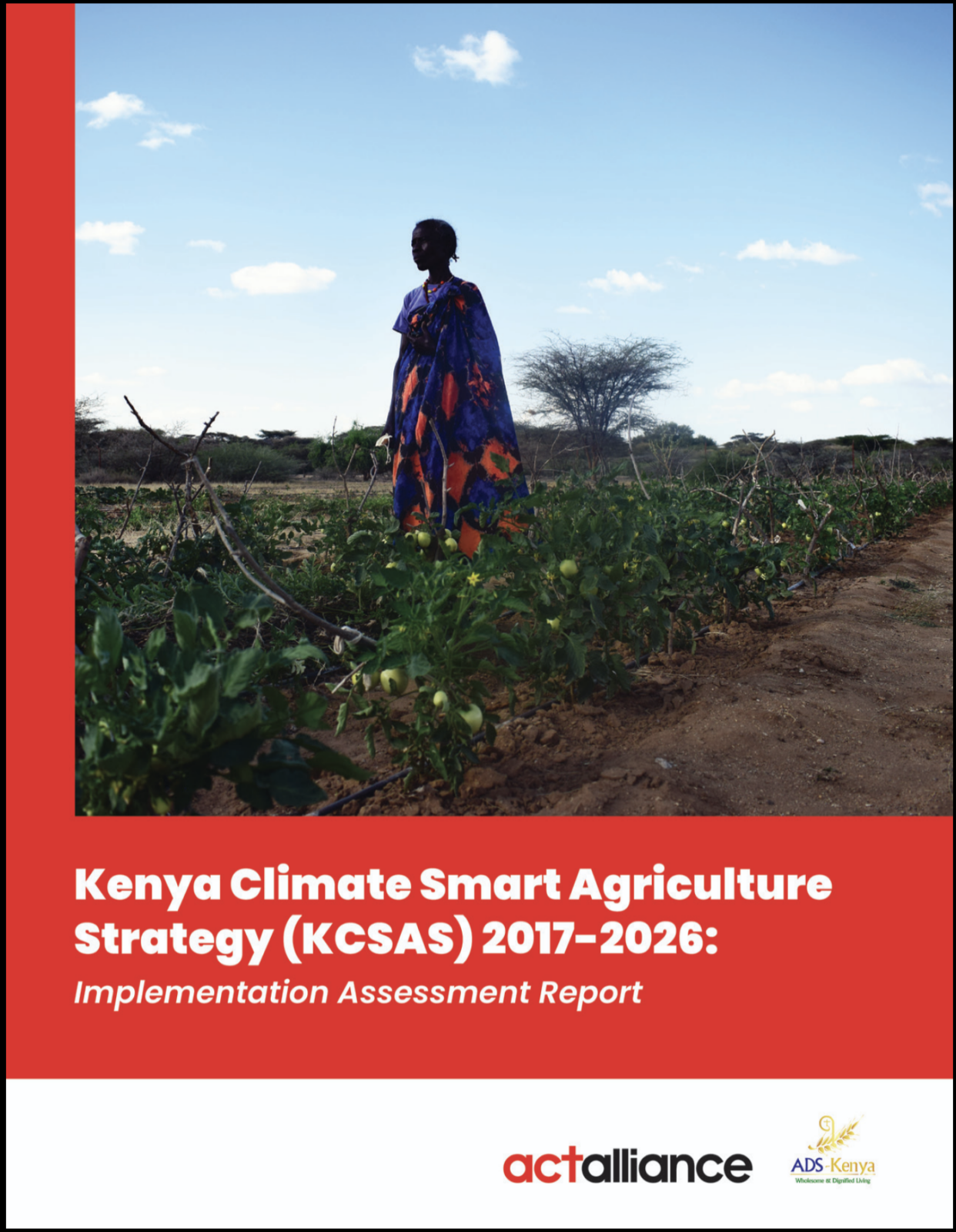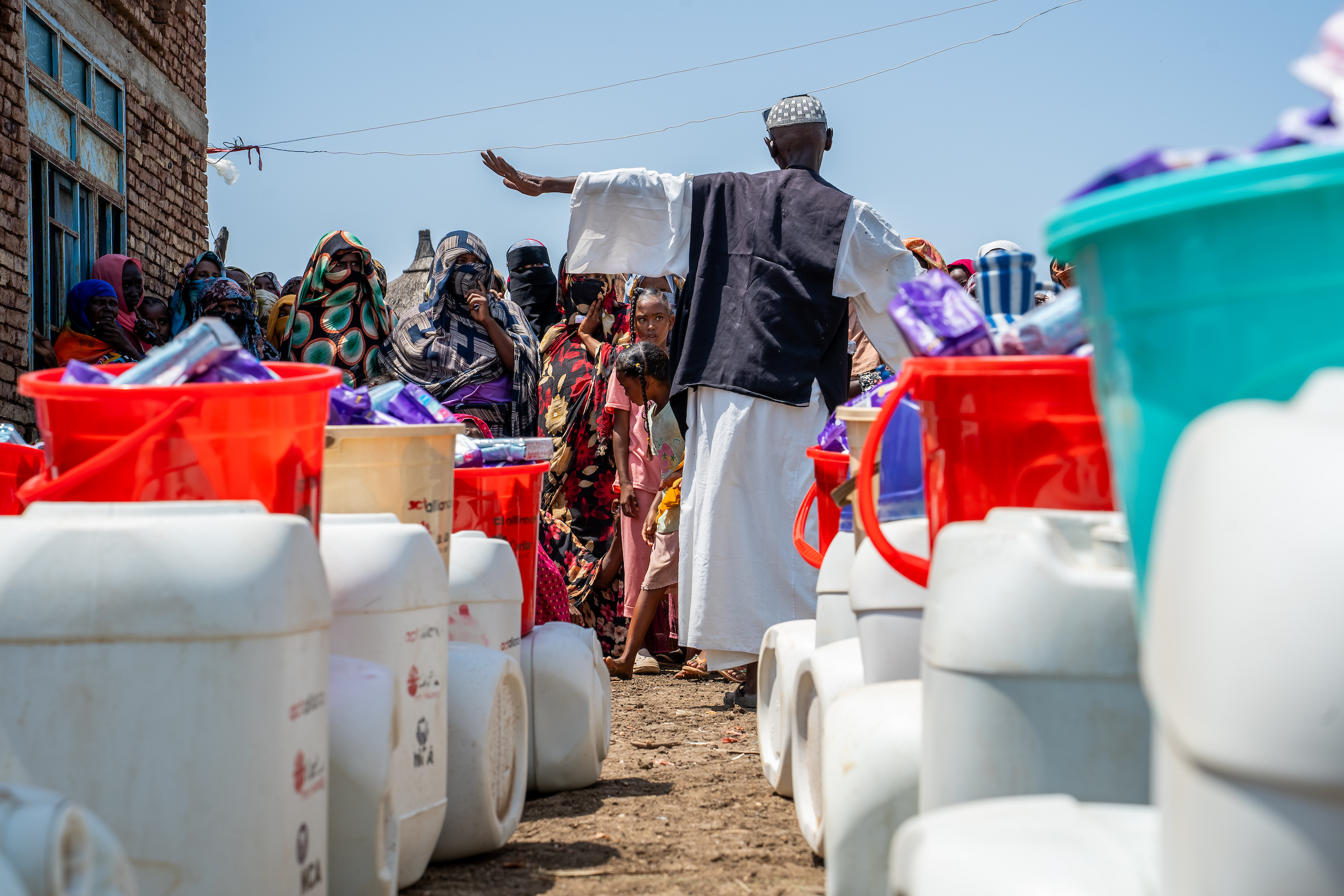ACT Alliance, as part of Major Groups and Stakeholders – Africa, was invited to contribute to the four-day Regional Consultative Meetings Africa ahead of the 20th African Ministerial Conference on the Environment (AMCEN), which also marked 40 years since the establishment of AMCEN. In preparation, ACT convened its members from Uganda, Zimbabwe, Tanzania, Kenya, and Ethiopia to shape collective inputs into the consultations hosted by UNEP, aimed at informing climate and environmental policies to be presented to African ministers.
ACT members actively participated in the Climate Change thematic drafting group, ensuring that the voices and priorities of communities we serve were reflected in the recommendations. Members’ reflections and inputs focused on amplifying Africa’s agency in global climate processes, securing just and adequate climate finance, and ensuring policies remain rooted in equity and the realities facing African countries.
Recognising Africa’s Climate Reality
Members emphasised that Africa continues to warm faster than the global average, despite contributing only about 4% of global greenhouse gas emissions. This reality underscores the urgency for climate action that is ambitious, fair, just, and responsive to Africa’s needs. Delegates reaffirmed the principles of the UNFCCC and the Paris Agreement, particularly Common But Differentiated Responsibilities (CBDR), equity, and climate justice, as fundamental pillars guiding Africa’s climate position.
ACT Members’(Uganda Forum, Zimbabwe Forum, Tanzania Forum, Kenya Forum and Ethiopia Forum) Propositions:
1. Strengthening Indigenous and Endogenous Technology Development: Africa should champion cooperative approaches to indigenous and endogenous technology development, especially in climate adaptation. This includes establishing equitable partnerships and direct funding for African-led solutions, ensuring traditional knowledge is recognised, documented, protected, and used to foster community-led innovation that is culturally appropriate and empowers local communities for a resilient future.
2. Leveraging the Youth Demographic Agency: Members highlighted the need to harness Africa’s youth demographic agency to drive climate innovation and accelerate digital transformation. Youth inclusion in climate policy design, technology development, and implementation is critical for ensuring sustainability and future-readiness.
3. Advancing an Africa-Centred Green Transition Agenda: There was a strong call for an Africa-centred climate and green transition agenda encompassing renewable energy, critical minerals, and natural resource value addition. Members emphasised that Africa’s green minerals should be leveraged for local value creation, job creation, and industrialisation to drive equitable economic transformation.
4. Climate Finance - Just, Fair, and Accountable: Members called for climate finance that is just, fair, accessible, predictable, and responsive to Africa’s needs, both at national and international levels. They proposed that African governments should develop climate finance tracking systems to monitor all climate finance mobilised, provided, and delivered within their countries. This tracking is essential to inform mobilisation efforts, identify current gaps, ensure evidence-based accountability, and support a needs-based financing regime.
5. Enacting Stand-Alone Climate Change Frameworks: ACT members urged African governments to enact stand-alone climate change laws and policies to enforce national and global commitments. Such legal frameworks will institutionalise climate action, strengthen implementation, and enhance accountability mechanisms across the continent.
6. Promoting Inclusive Climate Action through Faith and Social Groups: Members stressed the importance of fostering inclusion and participation of faith groups as they offer trusted platforms for sustainable implementation, behaviour change, and community mobilisation in addressing climate change impacts.
7. Gender-Responsive Climate Action: As Parties work towards developing a new Gender Action Plan under the UNFCCC, members highlighted the need to avoid the shortfalls of the first GAP by enhancing capacity building to address gender-related aspects of climate change in developing countries. This includes building technical and financial capacities of national gender focal persons to implement gender-responsive climate policies effectively. Members also called for improved mechanisms to hold Parties accountable for their GAP commitments, with robust tracking, reporting, and transparency in implementation.
8. Calls for Action and Africa’s Agency: Finally, ACT members called for renewed climate leadership, prioritisation of adaptation, strengthened finance mechanisms, and accelerated digital transformation. They emphasised Africa’s agency in pursuing a green, just, low-carbon, and climate-resilient development pathway, asserting unity in negotiations and implementation to secure Africa’s development priorities.
ACT members’ contributions to the draft policies and design processes were prominently reflected in Sections 2.11, 3.3, and 3.4 of the AMCEN at 40: A Legacy of Environmental Diplomacy and Leadership in Africa official report.
Alignment with African Negotiators’ Priorities
During side events at AMCEN 20, the Africa Group of Negotiators (AGN) reaffirmed their commitment to advancing a united African voice that calls for justice, equity, and ambitious delivery of the pillars of the UNFCCC and Paris Agreement.
Their priorities, closely aligned with ACT members’ inputs, include:
- Climate Finance: Africa continues to call for a New Collective Quantified Goal (NCQG) of USD 1.3 trillion annually by 2030, anchored in the principles of equity and Common But Differentiated Responsibilities (CBDR). A clear roadmap towards this goal remains critical.
- Adaptation: AGN emphasised the need for a robust Global Goal on Adaptation framework with context-specific indicators responsive to Africa’s vulnerabilities, directly linked to means of implementation. They expect COP30 to deliver a decision on adequate financing for National Adaptation Plans (NAPs), which continue to face severe underfunding.
- Loss and Damage: Africa called for full and equitable operationalisation of the Loss and Damage Fund, ensuring it addresses the continent’s economic losses. They demand institutional coherence between the Fund, the Santiago Network, and the Warsaw International Mechanism.
- Just Transition: AGN underscored that Just Transition is not only about decarbonisation, but also about justice, energy access, job creation, and development. Initiatives such as the AU Commission’s efforts to provide clean cooking solutions to 900 million Africans, including Mission 300 targeting 300 million by 2030, were highlighted as priorities.
- Africa’s Special Needs and Circumstances: AGN reiterated the need for formal recognition and regulation of Africa’s special needs under the Paris Agreement, grounded in its historically low emissions and high vulnerability.
- Leveraging Africa’s Natural Potential: There is a push for leveraging Africa’s natural resources and resilient ecosystems as catalytic enablers for low-carbon development and climate action, including through targeted just transition research.




